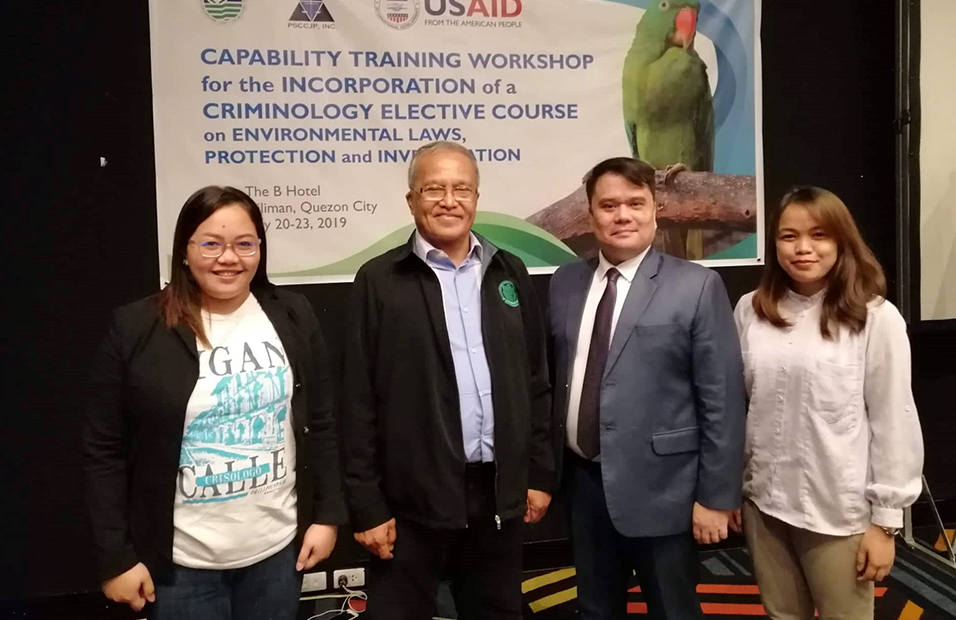Last May 20-23, 2019, the College of Criminal Justice (CCJ) of Our Lady of Fatima University (OLFU) attended a four-day capability training-workshop on Environmental Laws, Protection, and Investigation at the B Hotel, Quezon City. The training envisions of producing a syllabus on the affair’s subject, hoping to eventually propose it as an elective course in the new curriculum of the Bachelor of Science in Criminology. The workshop was funded by the United States Agency for International Development (USAID), and was facilitated by the Philippine Society of Criminologists and Criminal Justice Practitioners, Inc. (PSCCJPI)
The invited speakers were: Atty. Asis Perez, former Under Secretary and Director of BFAR, who talked about the salient features of the Fisheries Code; Atty. Ipat Luna, Regional Executive Director of DENR Region IV-A, who discussed the wildlife and Expanded National Integrated Protected Areas System Act of 2018 (ENIPAS); Atty. Dong Lorenzo of Protect Wildlife, who tackled the provisions of the Forestry Code and Chainsaw Act; Assistant Secretary Daniel Darius Nicer of the Anti-Corruption office of DENR, and OIC of the Manila Bay Rehabilitation Project and Office of the Anti-Corruption of DENR, who presented the best practices on environmental management and protection; and Dr. Dennis Lagumen, Criminology Dean of Calayan Educational Foundation, who gave a lecture on the 7-Steps of Investigating Environmental Crimes.
The OLFU CCJ representatives – CCJ Dean Zorobabel S. Laureles, together with Dr. Cecille Mae C. Canilon, QC Campus Program Head, and Ms. Katrina Gamboa, CCJ Pampanga Campus faculty – were invited by the PSCCJPI Chairman of the Board, Dr. Winston John Casio. The other participants were mainly composed of criminology deans from different schools of criminology across the country.



